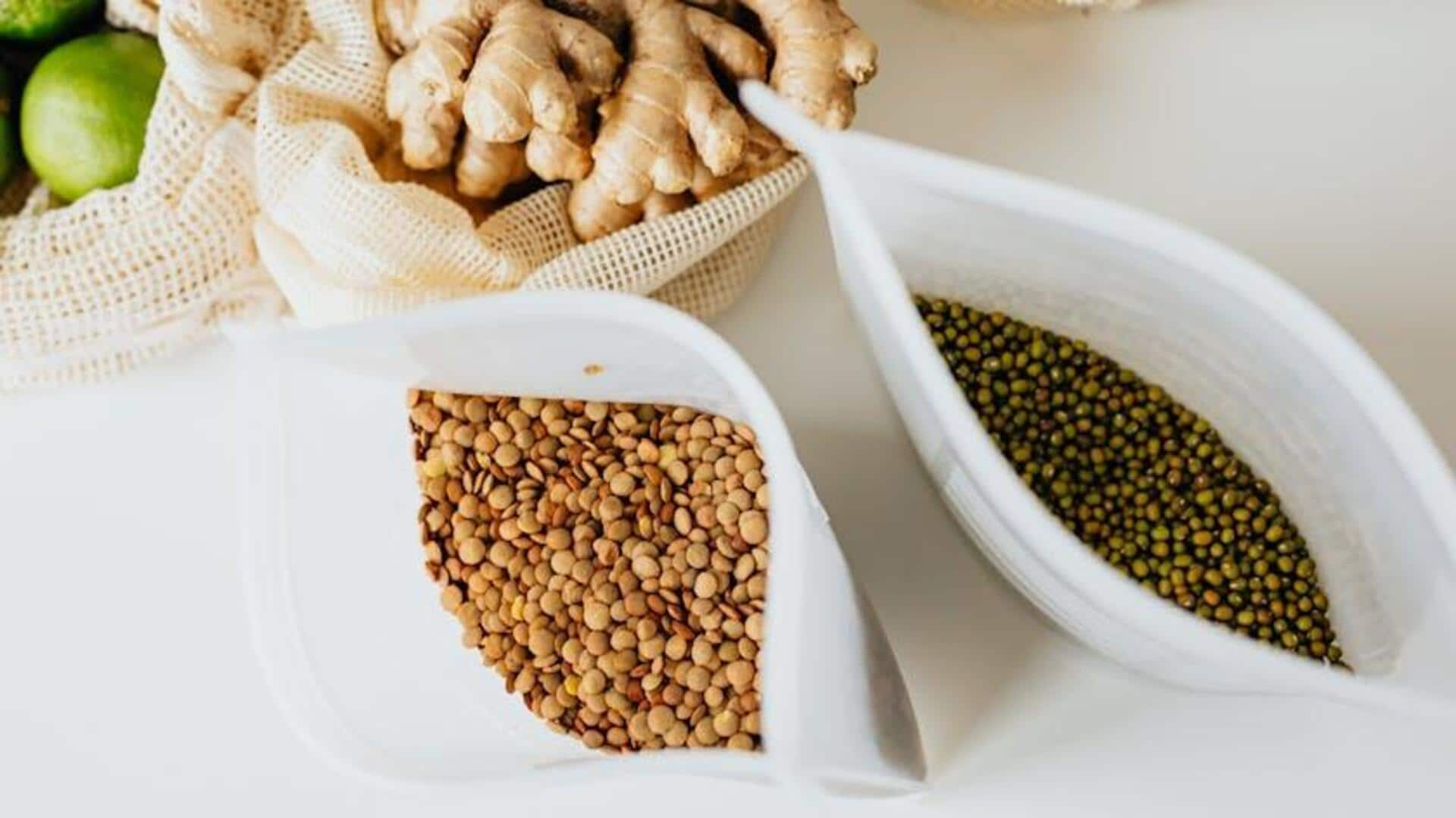
Key plant-based proteins in African vegan diets
What's the story
Africa, with its rich tapestry of cultures and cuisines, has long embraced vegan diets as both a tradition and a modern lifestyle choice. This article delves into the world of essential plant-based proteins that serve as the backbone of African vegan diets. These proteins pack a nutritious punch and their versatility makes them stars of the show in many dishes across the continent.
Legumes
Legumes: The protein powerhouses
Legumes serve as the primary source of plant-based protein in African diets, with lentils, black-eyed peas, chickpeas, and beans being common. They pack a punch with 15% to 30% protein by weight, surpassing most plant foods in protein content. Plus, they deliver fiber, iron, and B vitamins alongside protein, making them a vegan's nutritional cornerstone.
Grains
Grains: More than just carbs
Grains such as teff, millet, sorghum, and amaranth form the backbone of African cuisines, supplying more than just energy from carbohydrates. Teff, particularly high in protein, is a staple in Ethiopian injera (sourdough-risen flatbread) and boasts about 13% protein. Ground into flour and used in various breads and porridges, these grains, when paired with legumes, provide a complete profile of amino acids.
Nuts and seeds
Nuts and seeds: Nutrient-dense snacks
Nuts and seeds: Almonds, peanuts (groundnuts), sesame seeds (including tahini), chia seeds, and flaxseeds are excellent sources of protein and healthy fats. For example, sunflower seeds provide approximately 21% protein. Enjoy them raw or roasted as snacks, or use them to add flavor and nutrition to salads, dressings, and sauces.
Soy products
Soy products: Versatile protein sources
Soybeans and their processed forms (tofu and tempeh) are the key sources of protein for African vegans. Soybeans have a high protein content of around 36%, making them one of the most protein-dense plant-based options. Tofu can be marinated, baked, fried, or even scrambled, serving as a highly adaptable ingredient that can replicate the textures of many conventional meat dishes.
Leafy greens
Leafy greens: Surprising protein contributors
While not as protein-dense as legumes or nuts, green leafy vegetables such as spinach, kale, and moringa leaves play a role in supporting overall protein intake. These nutrient-dense greens provide 2% to 4% protein by weight. In addition to their small protein contribution, they're rich in essential vitamins, minerals, and fiber. They're the perfect complement to any meal, adding color, nutrition, and a burst of fresh flavors.